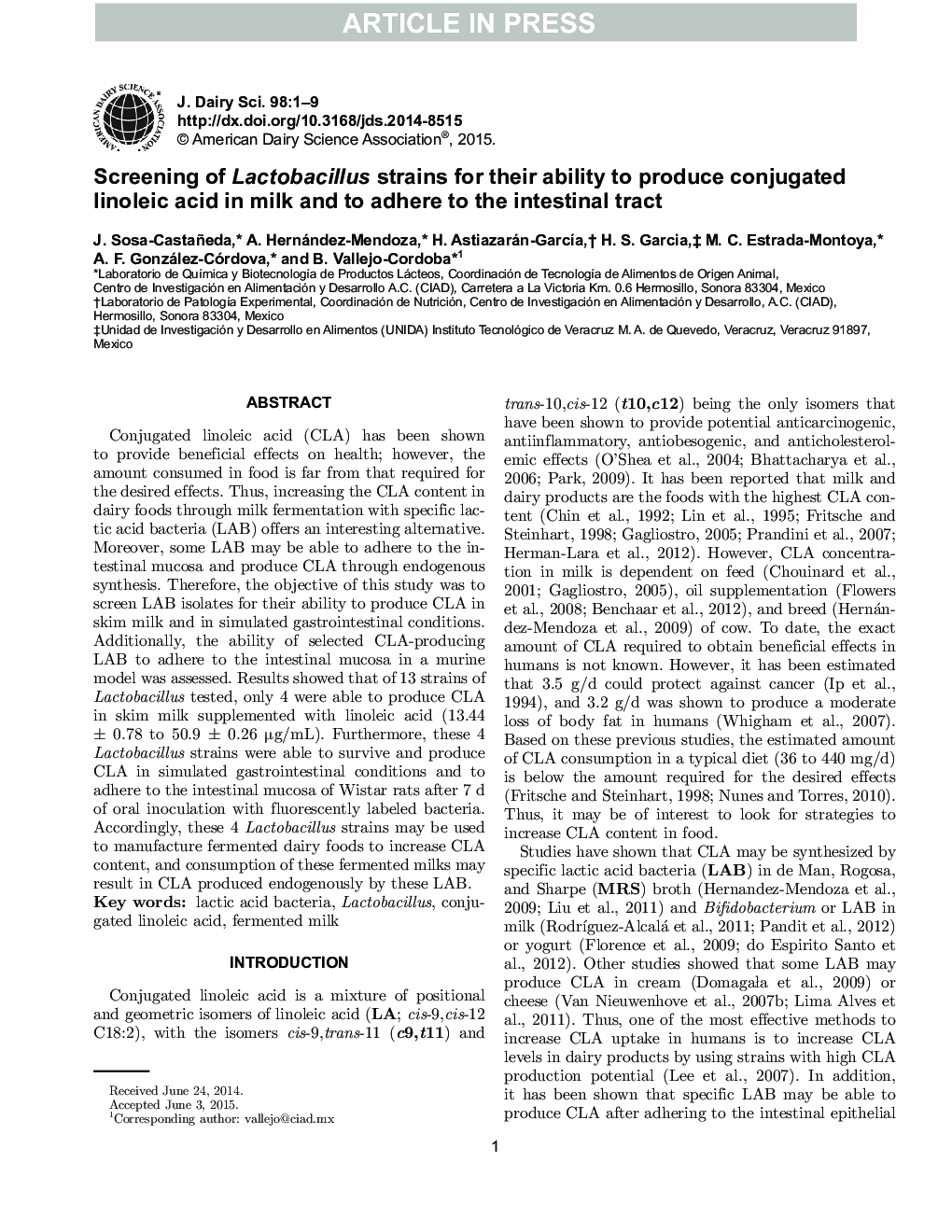| Article ID | Journal | Published Year | Pages | File Type |
|---|---|---|---|---|
| 10974846 | Journal of Dairy Science | 2015 | 9 Pages |
Abstract
Conjugated linoleic acid (CLA) has been shown to provide beneficial effects on health; however, the amount consumed in food is far from that required for the desired effects. Thus, increasing the CLA content in dairy foods through milk fermentation with specific lactic acid bacteria (LAB) offers an interesting alternative. Moreover, some LAB may be able to adhere to the intestinal mucosa and produce CLA through endogenous synthesis. Therefore, the objective of this study was to screen LAB isolates for their ability to produce CLA in skim milk and in simulated gastrointestinal conditions. Additionally, the ability of selected CLA-producing LAB to adhere to the intestinal mucosa in a murine model was assessed. Results showed that of 13 strains of Lactobacillus tested, only 4 were able to produce CLA in skim milk supplemented with linoleic acid (13.44 ± 0.78 to 50.9 ± 0.26 µg/mL). Furthermore, these 4 Lactobacillus strains were able to survive and produce CLA in simulated gastrointestinal conditions and to adhere to the intestinal mucosa of Wistar rats after 7 d of oral inoculation with fluorescently labeled bacteria. Accordingly, these 4 Lactobacillus strains may be used to manufacture fermented dairy foods to increase CLA content, and consumption of these fermented milks may result in CLA produced endogenously by these LAB.
Related Topics
Life Sciences
Agricultural and Biological Sciences
Animal Science and Zoology
Authors
J. Sosa-Castañeda, A. Hernández-Mendoza, H. Astiazarán-GarcÃa, H.S. Garcia, M.C. Estrada-Montoya, A.F. González-Córdova, B. Vallejo-Cordoba,
